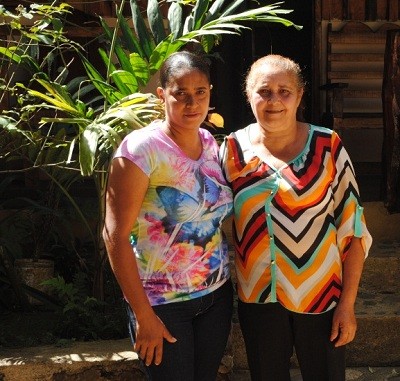
Sept. 2014—Sonido del Yaque—which means “sound of the Yaque River”—is a business that delivers on its name. The small set of tourist cottages in the Dominican Republic offers not just the soothing sound of the nearby river, but also an idyllic view of the river valley and relief from the hot weather in nearby Santo Domingo.
Sonido del Yaque was founded in 2003, when Esperanza Martes Victoriano and Ivelisse Batista Martes, a mother and daughter team, saw an opportunity to offer food and lodging to tourists rafting down the Yaque. They ran into an early hurdle, however, when the rafting business closed down. Suddenly, they had to attract tourists to the area themselves, a tall order for a new enterprise with limited resources.
Help came in the form of a USAID eco-tourism and climate change project, which began working with them that same year. USAID, through the Dominican Consortium for Tourism Competitiveness (CDCT), designated Sonido del Yaque a Dominican treasure—certifying that it promotes Dominican culture and respect for the environment.
The Dominican Republic is considered one of the top 10 countries in the world that are most vulnerable to climate change. The tourist industry—which is extremely vulnerable—has a big role to play in helping the country adapt to new realities, including extreme weather, flooding and drought.
USAID’s support to Sonido del Yaque included four bio-digesters that create cooking gas out of organic waste, as well as workshops on how businesses can increase their resilience to climate change. USAID also supported the construction of a new stairway down the steep valley to the cabins—reducing erosion and easing access down the hill. Even on rainy days, a walk that used to take more than half an hour can be done in five minutes.
“We have also reforested the area to make it more beautiful and keep it cool on hot days,” says Batista Martes. “We have increased energy efficiency, and our profits increased by 40 percent.” The process has been slow, she says, but “step by step, with patience,” they have seen the results of their efforts.
USAID has helped businesses like Sonido del Yaque take the lead in combating climate change by developing “clusters” in 10 regions of the country. Each cluster is composed of representatives from tourist organizations in each region—taxi drivers, hotels, eco lodges and restaurants.
“The cluster brings those heads together to make decisions about tourism, environmental management and other relevant issues,” says Karen Pannocchia of the Dominican Consortium for Tourism Competitiveness.
Climate change workshops held by USAID for each cluster were tailored to local needs. On the coast, workshops focused on the use of mangroves to reduce flooding. In areas like Jarabacoa, where Sonido del Yaque is based, workshops focused on conserving water and energy.
These Dominican treasures are introducing a new way of thinking, helping international and local tourists alike gain an appreciation for Dominican culture and natural heritage.
“Eco-tourism is a new concept for the country,” says Pannocchia. “We’re known for all-inclusive tourism. And Dominicans are not used to paying for a vacation to rough it. But slowly, we’ve been attracting more environmentally conscious tourism.”
The USAID program, which ended in 2014, focused on promoting sustainable tourism initiatives to help local development.
LINKS
Follow @USAIDEnviro







Comment
Make a general inquiry or suggest an improvement.